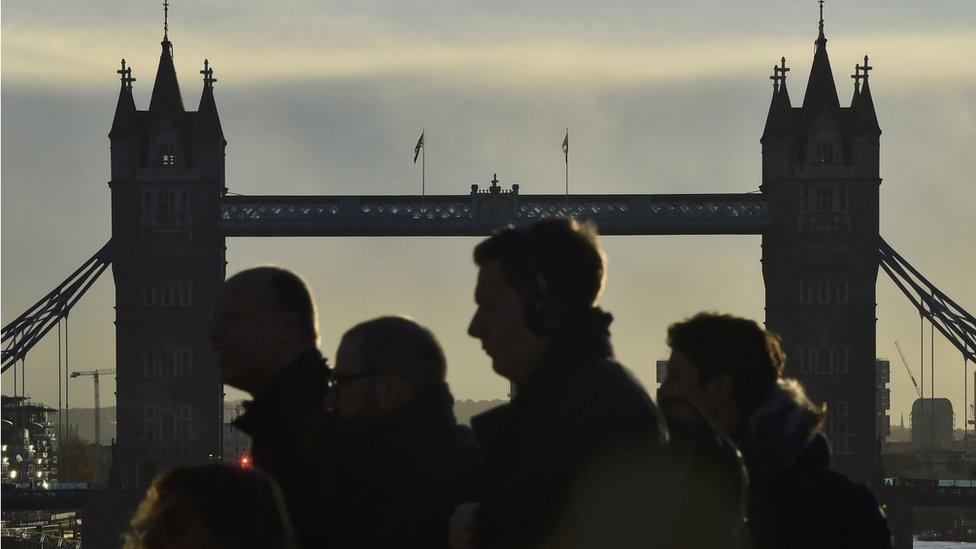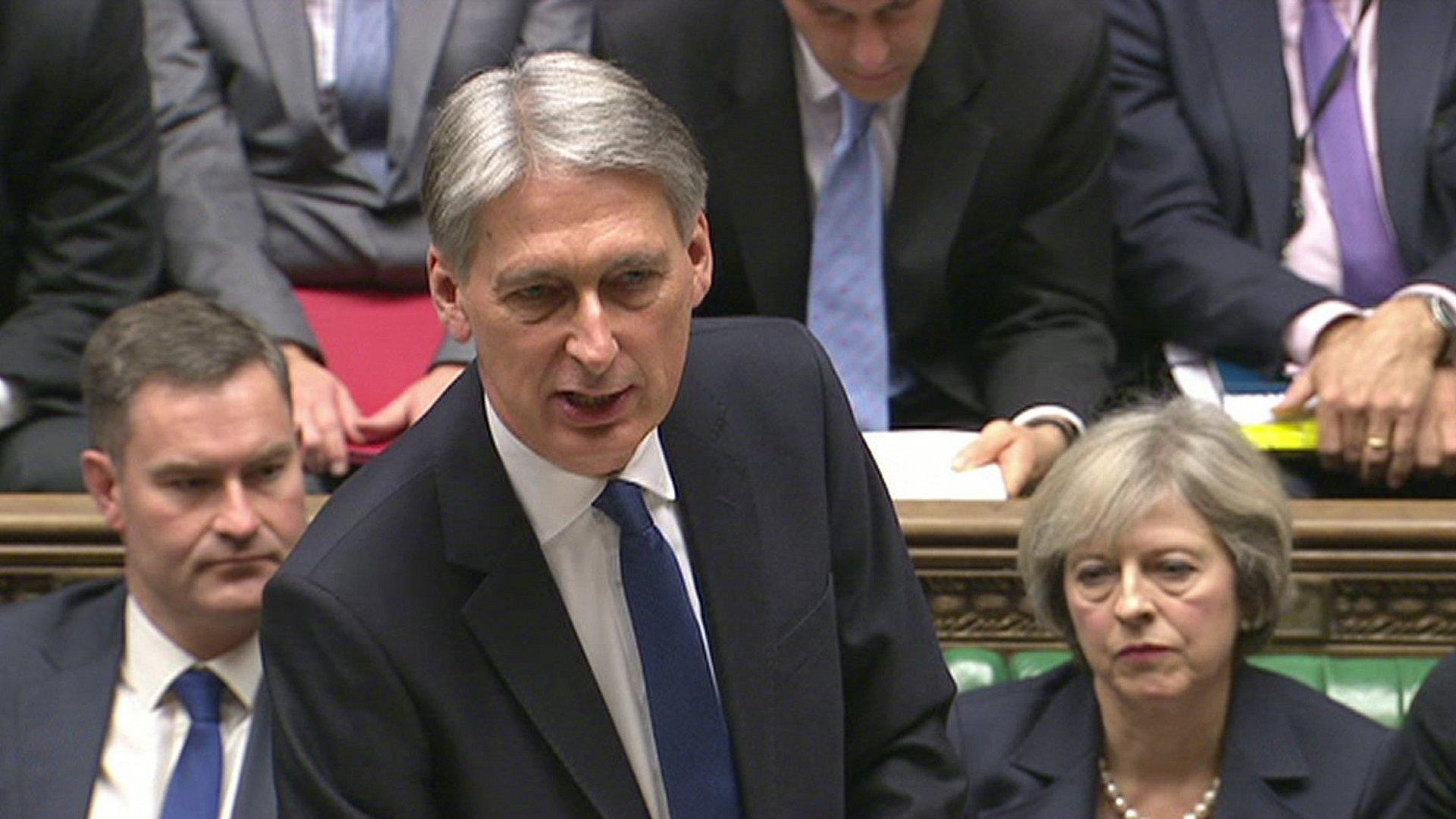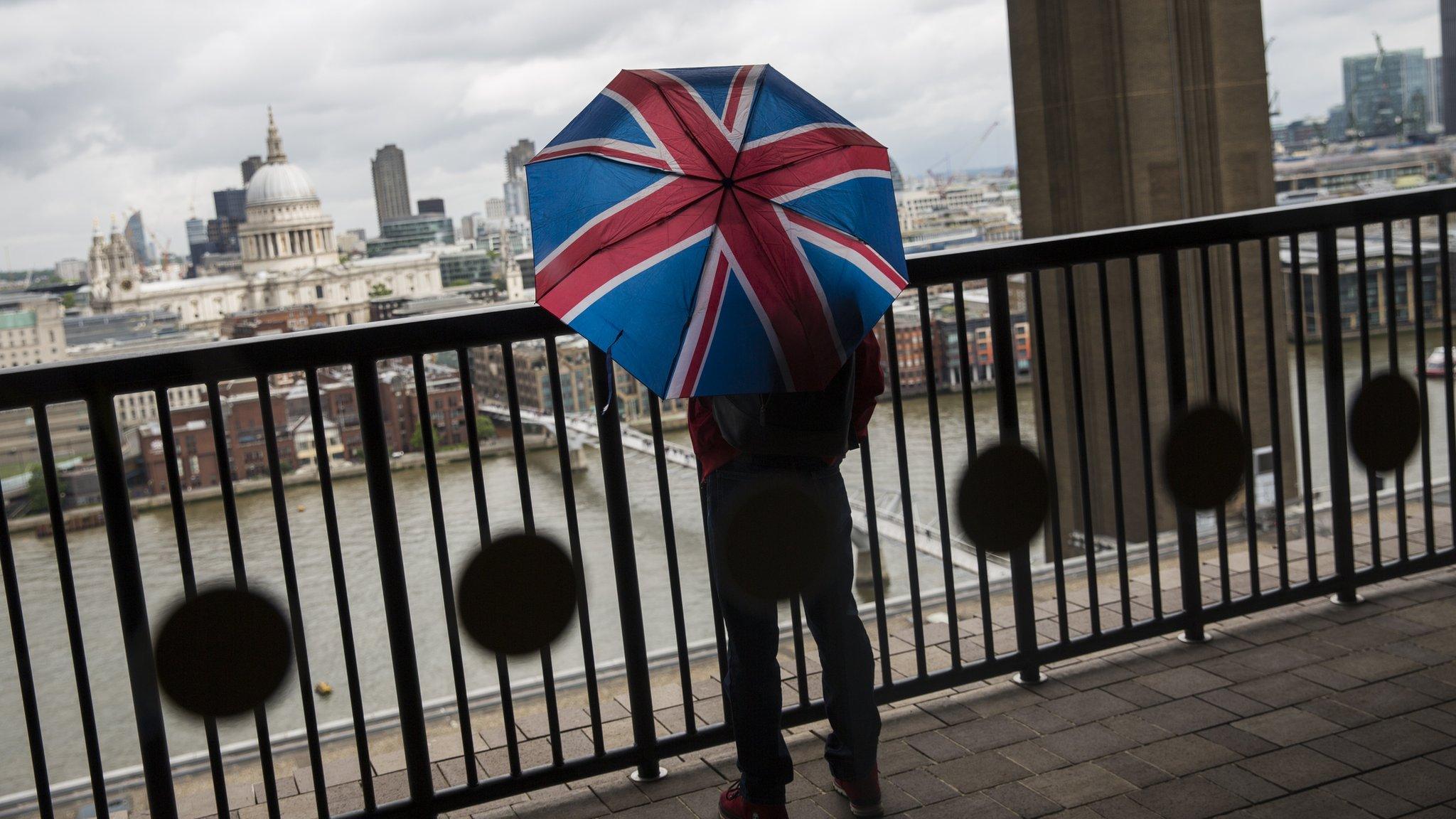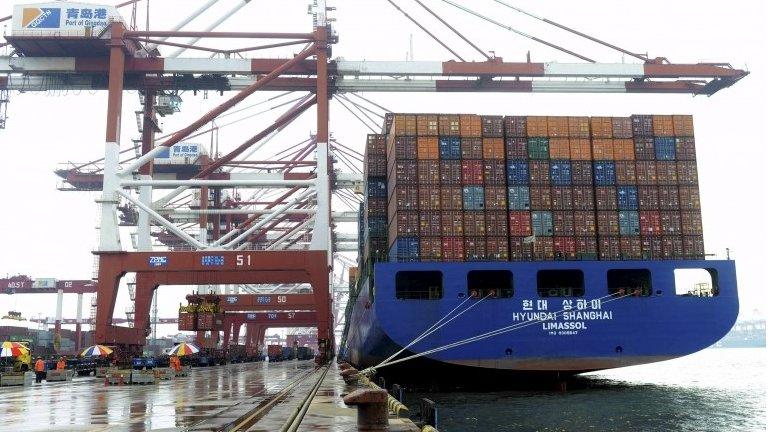National Living Wage: OECD urges caution over increase
- Published
- comments

The UK should be careful with its plans to raise the National Living Wage, according to the Organisation for Economic Co-operation and Development.
The OECD said, external "caution" was needed in the roll-out of the policy, given its possible impact on employment.
In the Autumn Statement, Chancellor Philip Hammond pledged to raise the wage to £7.50 an hour next April.
The OECD also forecast that the UK would have one of the lowest growth rates among G20 countries by 2018.
The National Living Wage was introduced by Chancellor George Osborne in his Budget in July 2015.
It came into effect in April this year, and was set at a rate of £7.20 an hour for workers aged 25 and over, with the aim of increasing it to £9 an hour by 2020.
Pay rise
The UK's Office for Budget Responsibility estimated it would give a pay rise to 1.3 million workers this year.
The OECD said the UK's labour market had been "resilient", although job creation had moderated recently.
"Real wages have been growing at a time of low inflation, but the fall of the exchange rate has started to increase price pressures," it said.
"Caution is needed with the implementation of the policy to raise the National Living Wage to 60% of median hourly earnings by 2020.
"The effects on employment need to be carefully assessed before any further increases are adopted, especially as growth slows and labour markets weaken."
The organisation's stance echoes the widespread claims of business organisations in the 1990s that the introduction of the UK's national minimum wage - which started in 1999 - would lead to widespread job losses.
Those fears proved to be groundless, with the number of people in employment rising from 27 million then to nearly 32 million now, external.


Analysis: Andrew Walker, BBC economics correspondent
The OECD says the world economy has been stuck in a low growth trap for five years. It says government spending and tax policies could be used to provide a boost.
The report expects action on these lines from the administration of President-elect Donald Trump in the United States and predicts that will result in a modest boost beyond US borders.
It also suggests that other countries could afford to take similar steps.
But the OECD says that any benefit could be offset if countries resort to measures that restrict trade to protect their own industries.

Brexit 'unpredictability'
The OECD predicts that the UK's economy will grow by 1% in 2018, slower than both Germany (1.7%) and France (1.6%).
However, the organisation has raised its UK growth forecasts for this year and 2017.
It now predicts the UK's economy will expand by 2% this year, compared with an earlier forecast of 1.8%, while in 2017 it has lifted the growth forecast to 1.2% from 1.0%.
The OECD said the upward revision was specifically because of Bank of England action and the depreciation in sterling since the Brexit vote.
Looking ahead, the organisation warned that the UK's unemployment rate could rise to more than 5% because of weaker growth.
It also predicted a sharp rise in inflation as the pound's slide against the dollar and euro starts to be reflected in prices in the shops.
"The unpredictability of the exit process from the European Union is a major downside risk for the economy," it said.
The OECD's forecast for growth in the US has risen since the election of Donald Trump as the country's next President.
It revised its prediction for 2016 up to 1.5% from 1.4%, and next year's estimate to 2.3% from 2.1%. In 2018 it is forecasting 3% growth.
- Published23 November 2016

- Published8 November 2016

- Published21 September 2016

- Published1 June 2016

- Published9 November 2015
